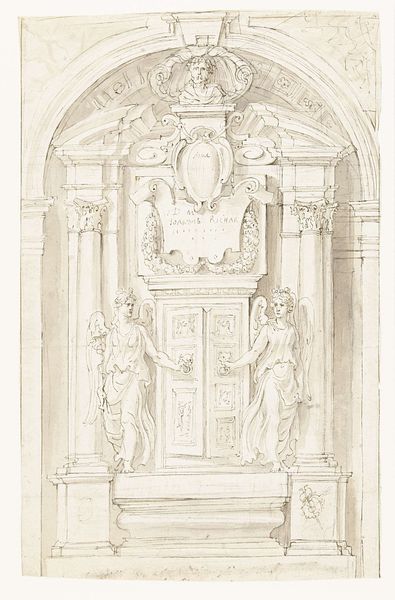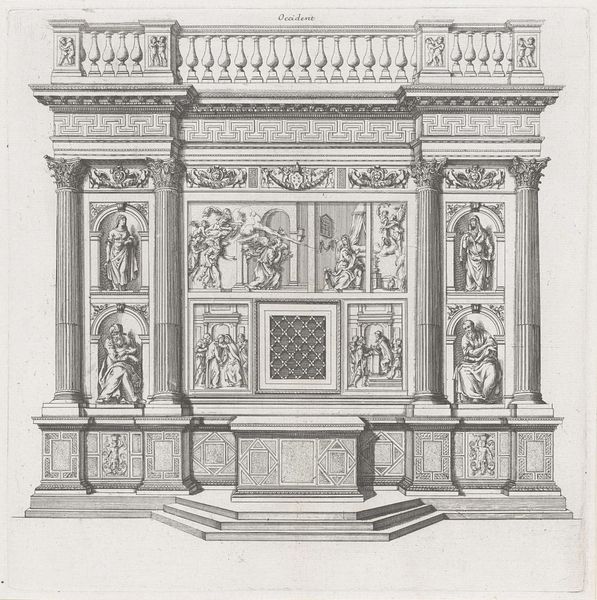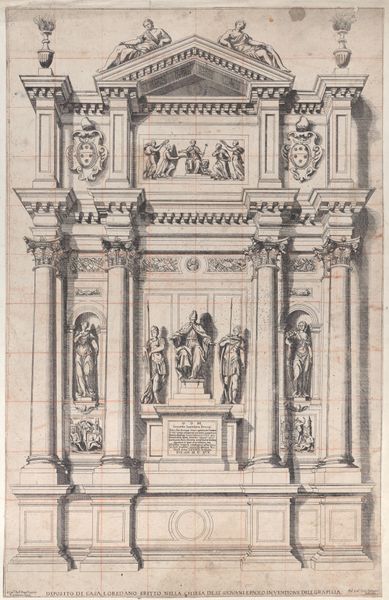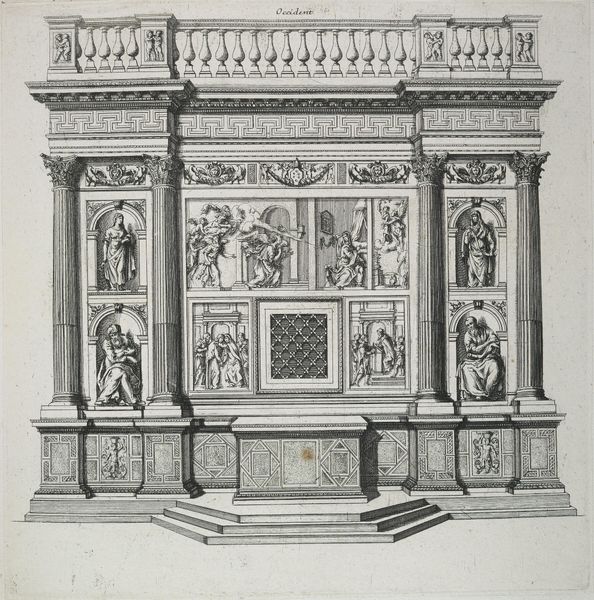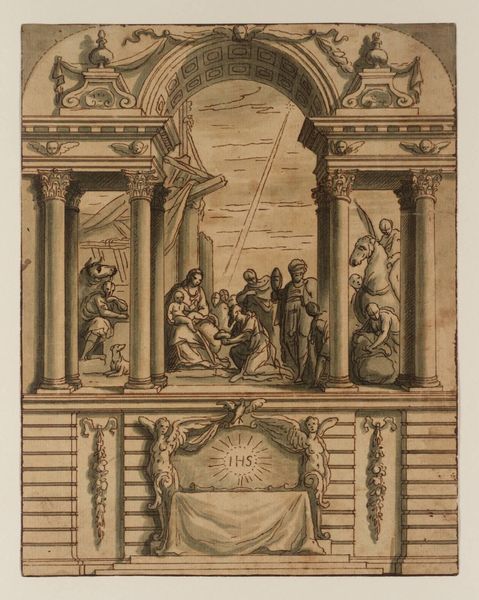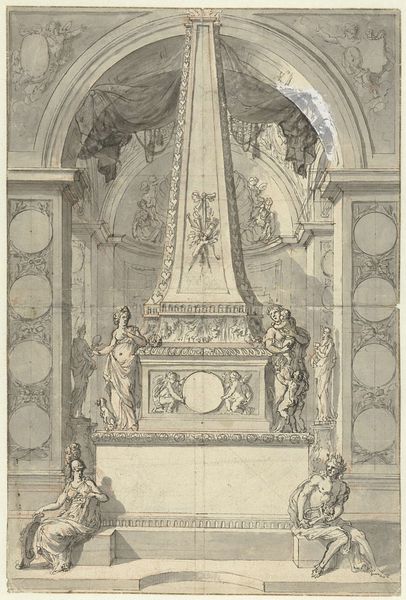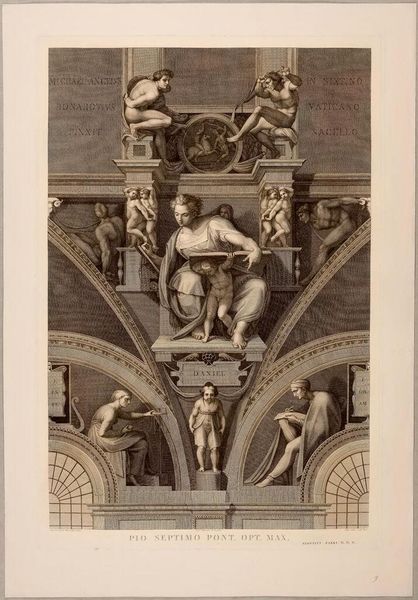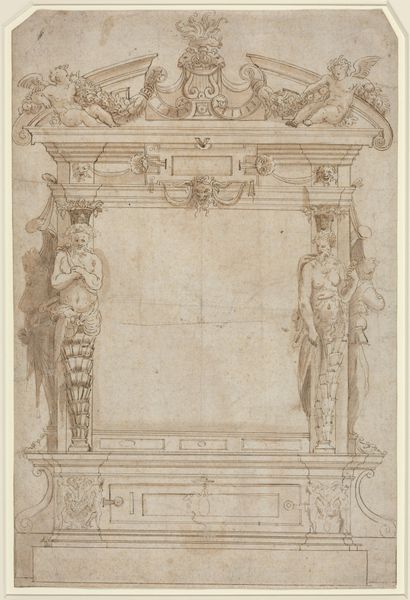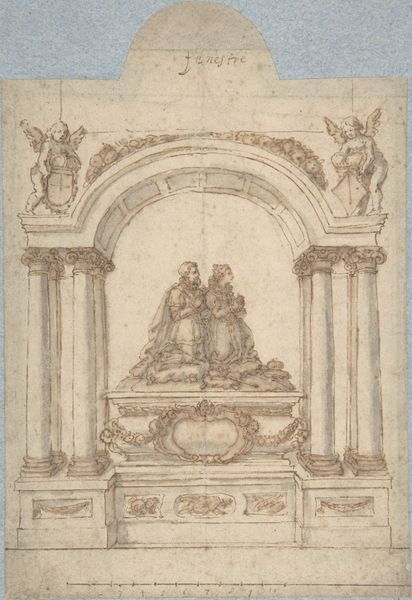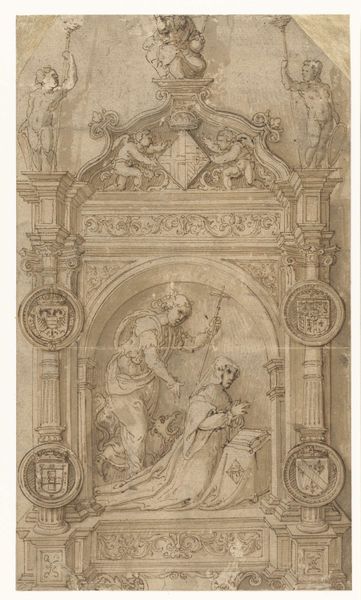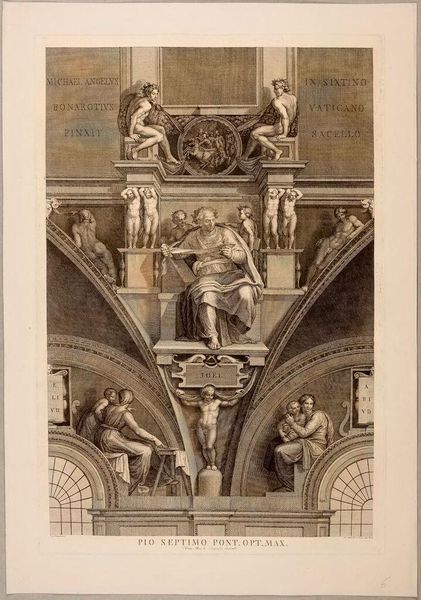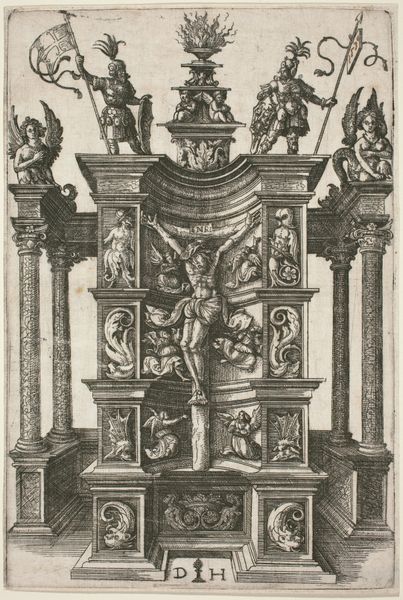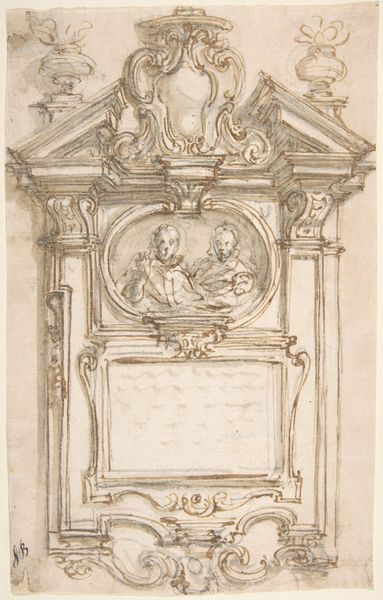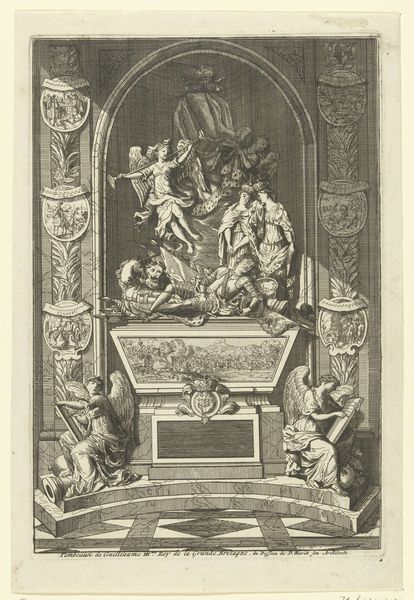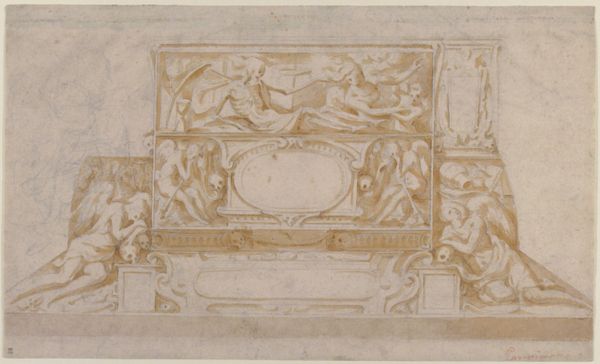
carving, sculpture, marble
#
carving
#
sculpture
#
figuration
#
historic architecture
#
11_renaissance
#
sculpture
#
history-painting
#
marble
#
italian-renaissance
Copyright: Public domain
This marble tabernacle was sculpted by Desiderio da Settignano in Florence during the Early Renaissance. Note the putti figures above, symbols of divine love, and the delicate carving of the entablature. These motifs carry echoes from ancient Roman art. Observe the 'Egg-and-Dart' pattern, a classical motif signifying life and death, found here framing the niche. It’s a motif that reappears across millennia, from Greek temples to Neoclassical buildings, each time imbuing the structure with a sense of timelessness and authority. These cherubic figures, derived from pagan imagery, became symbols of innocence and messengers of love, transcending their original context to embody a universal emotional appeal. Consider how these classical forms evolved, adapted by artists to convey new layers of meaning. The emotional impact of these forms engages viewers on a deep, subconscious level, evoking feelings of reverence, mortality, and the continuity of human experience.
Comments
No comments
Be the first to comment and join the conversation on the ultimate creative platform.
